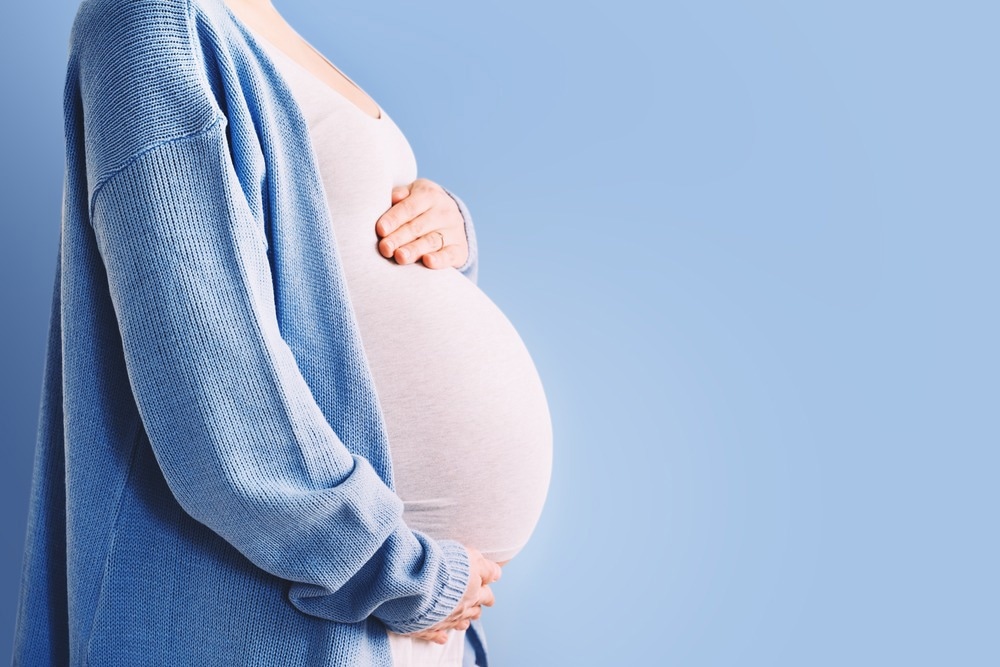The relationship between nutrient intake and time in bed in the second and third trimesters of pregnancy

In a recent study published in Nutrients, researchers evaluated the association between the time in bed (TIB) and difficulty sleeping with nutrient intake during the second trimester (T2) and the third trimester (T3) of gestation.

Background
Data on the association between dietary intake and sleep quality among pregnant women is limited, and previously published studies have reported contradictory findings. Evaluating the association between TIB and nutrition among the pregnant population could inform healthcare professionals and improve the standard of care provided to expecting women.
About the study
In the present study, researchers assessed the relationship between diet and TIB during T2 and T3 among New Zealand (NZ) residents. They also investigated diet-associated sleeping difficulties in the pregnant population.
During the second and third pregnancy trimesters, pregnant NX residents, who participated in the “Nutrition in Pregnancy” study, filled out questionnaires to obtain data on demographic, lifestyle, and medical parameters. In addition, diet data were obtained from the participants from one-day interviewer-administered diet recalls and three self-documented food records.
The questionnaires were similar to NZ national nutrition surveys. Maternal weight, height, biceps, triceps, and skinfolds in the costal region were measured, and physical fitness was assessed using the 24-hour diary data, in addition to that of the physical activity diaries. Individuals were enrolled through advertisements in free pediatric care clinics, media advertisements, and word-of-mouth from religious and community settings.
In total, 504 pregnant women in gestational week 14 were enrolled and matched to interviews of the same ethnic background who were qualified in community healthcare and nutrition. The interviewers visited the subjects during the T2 and T3 periods and post-delivery. The gestation age was determined from the date of the most recent menstruation, and the severity of morning sickness was assessed using questionnaires.
Dietary intake was calculated using the NZ food composition database by integrating the one-day recall data and three-day food data to determine the average intake of all nutrients, by the participants, during T2 and T3. Multiple linear regression modeling analyses were performed for the analysis, with covariates including maternal anthropometric parameters, ethnic background, socioeconomic status, morning sickness, hours of work, family, childcare and lifestyle data, pre-pregnancy alcohol intake, and gestational age when the interviews were conducted.
Results
Complete data were available for 370 and 310 women during T2 and T3, respectively. The median TIB values during T2 and T3 were 9.8 hours and 10 hours, respectively. In the second and third pregnancy trimesters, the time in bed was related to disability or welfare status, age, and status of marriage. In the second trimester, the time in bed was related to childcare, work, educational status, and alcohol intake before pregnancy.
Particularly, TIB values correlated positively with beer intake before pregnancy and negatively with wine intake. Logistic regression modeling showed lower TIB values among women who consumed alcohol before pregnancy. Fewer significant associations were observed for lifestyle-related covariates for the third trimester.
During the second and third trimesters, time in bed was reduced with increased dietary consumption, particularly protein, water, potassium, biotin, calcium, magnesium, manganese, and phosphorus. TIB was reduced with a greater nutritional density of vitamin B complex (riboflavin, thiamine, and niacin), potassium, saturated fats, lactose, and fructose, whereas greater TIB was observed with diets rich in vitamin E, sucrose, and carbohydrate.
Greater subjective sleep difficulties were observed with increased gestational week, anxiety, the severity of morning sickness, saturated fat and dairy intake, and reduced diets rich in fruits, monounsaturated fats, beta-carotene, and vegetables. TIB correlated negatively with age, income, educational status, and marital status and correlated positively with the frequency of depression and anxiety. In T3, TIB reduced significantly with increased saturated fatty acid (SFA) and potassium density and decreased vitamin E density.
Women consuming high-sugar diets had greater TIB values, whereas those consuming with fat- based and animal protein-based diets had lower TIB values. Women with greater morning sickness severity and intake of SFA (T2) and vitamin B6 (T3) reported a greater frequency of sleep difficulties. Monounsaturated fatty acid (MUFA) intake was associated with improved sleep.
Conclusion
Overall, the study findings highlighted the impact of diet and several covariates on TIB values among pregnant women in New Zealand.
- McDonald, B. and Watson, P. (2023) "Time in Bed, Sleeping Difficulties, and Nutrition in Pregnant New Zealand Women", Nutrients, 15(5), p. 1130. doi: 10.3390/nu15051130. https://www.mdpi.com/2072-6643/15/5/1130
Posted in: Medical Science News | Medical Research News | Disease/Infection News
Tags: Alcohol, Anxiety, Beer, Beta-Carotene, Calcium, Carbohydrate, Depression, Diet, Disability, Food, Frequency, Fructose, Healthcare, Magnesium, Manganese, Marriage, Menstruation, Morning Sickness, Niacin, Nutrients, Nutrition, Physical Activity, Potassium, Pregnancy, Protein, Saturated Fats, Sleep, Vegetables, Vitamin B, Vitamin E, Wine

Written by
Pooja Toshniwal Paharia
Dr. based clinical-radiological diagnosis and management of oral lesions and conditions and associated maxillofacial disorders.
Source: Read Full Article